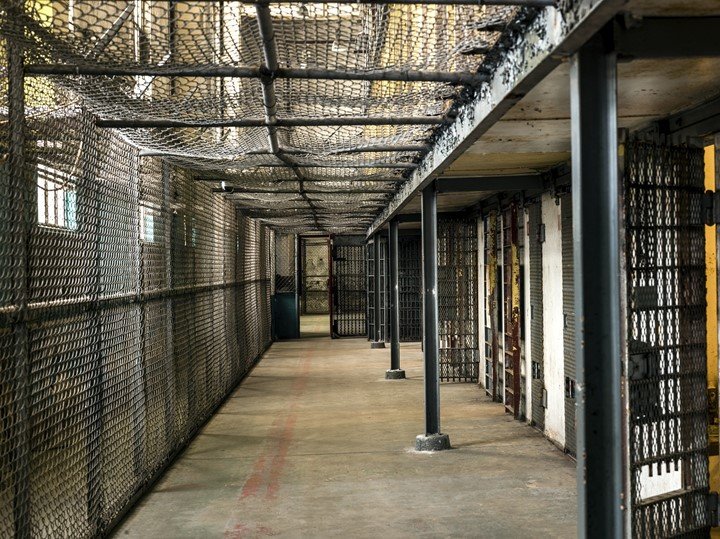Solitary confinement is the lodging of a grown-up or adolescent with insignificant to intriguing significant contact with others who are also under imprisonment. Those in isolation frequently experience tactile hardship and are offered not many or no instructive, professional, or rehabilitative projects. In different locales, isolation is alluded to by confinement, authoritative, defensive, or disciplinary isolation, durable lockdown, greatest security, security lodging, unique lodging, escalated administration, and prohibitive lodging units. Regardless of the term utilized, a person who denied significant contact with others is supposed to be isolated.
Pros of solitary confinement
1. It helps guarantee well-being in jails: Since its foundation, the motivation behind isolation in jails has been to keep unfriendly detainees from being a danger to other people. Assuming a specific individual represents a threat to different detainees or staff, isolation fills in as a security measure for the remainder of the jail populace.
2. It is utilized by jail watches as one more technique to train prisoners: Isolation is a powerful method for jail gatekeepers to control negative conduct. Security guards utilize discipline techniques to keep a feeling of control inside the jail. Isolation isn’t intended to be seen decidedly by detained people, and it stops them from acting such that warrants it.
3. An apparatus that can change a detainee’s personality: This is a different objective of isolation as it serves to give imprisoned people restoration or change to their personality. Researchers contend that indicted individuals left alone with their considerations can take advantage of their still, small voice, take part in internal reflection, and comprehend the heaviness of their wrongdoing, subsequently choosing to change their conduct.
4. It helps with reorganizing detainee characters: One more legitimate point of the criminal equity framework is restoration or renewal of character. As per a review directed by Dr. Sharon Shalev, this was notable reasoning for isolation. She said, “Isolation was first broadly and methodically utilized on the two sides of the Atlantic in the ‘discrete’ and ‘quiet’ prisons of the nineteenth century to change convicts. It was accepted that once left alone with their soul and the Bible. Detainees would take part in inward reflection, see the mistake of their methodologies, and be transformed into reputable residents.”
5. It can satisfy the interests of the people in question and individuals from general society to see transgressors rebuffed.
Isolation can give support of some sort to build discipline in certain circumstances. Different things are equivalent, yet the degree to which casualties and people, in general, are being fulfilled has been placed being referred. The interest of society individuals to see wrongdoers being rebuffed may give reasoning to isolation, essentially when a current punishment is viewed as “excessively frail.” In any case, the adequacy of this interest is dubious, considering the genuine damages isolation would bring, so it should be combined with different advantages.
6. It gives detainees some assurance from the overall population: High-hazard guilty parties and other perilous detainees, like killers, kid molesters, and ex-gangsters, can be kept isolated in isolation. It is because it utilizes a lot higher security conventions, and this way, it would be harder for such detainees to hurt others.
Cons of solitary confinement
1. It can crumble a detainee’s state of mind: Individuals in isolation become powerless against the danger of emotional well-being messes. Such psychological circumstances incorporate schizophrenia. People in confinement are inclined to encounter daydreams and mental trips too. Distrustfulness, claustrophobia, uneasiness, and different manifestations of mental problems can likewise emerge because people lose their hold on the real world. Many detained people regularly participate in pointless conduct to keep away from such conditions to assume responsibility for their environmental elements.
2. It can harm the actual well-being: Once requested into isolation, detained people don’t have the opportunity to go for strolls on the jail grounds or go outside by any stretch of the imagination. Because of this, they can become inadequate Vitamin D, making them defenseless to a wide scope of sicknesses, and they seriously need actual work. Also, isolation can deny them prompt clinical consideration when required, permitting diseases to advance further into significant conditions.
3. Isolation abuses essential basic liberties: Detainees are individuals, and hence, individuals contend that isolation, particularly on a drawn-out premise, fits the meaning of torment, following different worldwide common liberties settlements. Long haul repression has been displayed to make both mental and actual harm imprisoned people. Furthermore, causing serious torment or enduring mental or physical to scare or rebuff establishes torment is an unmistakable infringement of common liberties.
4. It may not be successful all the time: Isolation is intended to change and restore an imprisoned individual’s conduct. Be that as it may, it may not dependably function true to form. Now and again, rather than thinking about their bad behavior, imprisoned people will often zero in on the actual isolation or the brutality of the discipline. This way, they might wind up challenging them.
5. It offers practically no protection to detainees: Under isolation, it will generally screen the developments of detainees practically all the time by utilizing camcorders, and correspondence between control stall officials and detainees is mostly done through the vents.
6. Loss of opportunity: If somebody is being disconnected in a cell, they would be ripped off the sensation of having command over their current circumstance, bringing about expanded uneasiness, distrustfulness, and claustrophobia. Most detainees put under such a discipline attempt to oversee their environmental elements by turning to foolish conduct.
Certain individuals consider isolation to be quite possibly the most troublesome method for doing time, while others search it out to have a solid sense of reassurance while in jail. To close whether this is a moral imprisonment practice, we overload its advantages and disadvantages. All of us will have adequate information to conclude which side of the discussion they will uphold.



